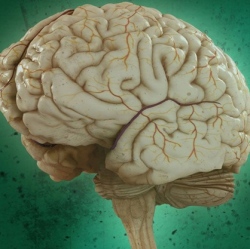
Zika virus kills the type of tissue found in the developing brain, researchers have shown. It was able to destroy or disrupt the growth of neural progenitor cells, which build the brain and nervous system, in lab tests. The discovery adds weight to claims that Zika is causing brain abnormalities in babies. Researchers caution this is not yet the conclusive link.
There have been more than 4,800 confirmed and suspected cases of babies born with small brains – microcephaly – in Brazil. It is widely thought that the Zika outbreak is to blame, but this has not been scientifically confirmed.
The team from the Johns Hopkins, Florida State and Emory universities infected a range of tissue samples with Zika virus for two hours and then analysed the samples three days later. The virus was able to infect up to 90% of neural progenitor cells in a sample leading to nearly a third of cells dying and the growth of the rest being disrupted.
A similar effect in a developing brain could have devastating results. The virus was able to infect only 10% of other tissue types tested including more advanced brain cells, kidney cells and embryonic stem cells. Prof Guo-li Ming, one of the researchers, said the findings were significant and represented a first step to understanding the link between microcephaly and Zika.
She told the BBC News website: "Neural progenitor cells are especially vulnerable to the Zika virus. "They are giving rise to the cortex – the primary part [of the brain] that shows reduced volume in microcephaly. "But this research does not provide the direct evidence that Zika virus is the cause for microcephaly."
